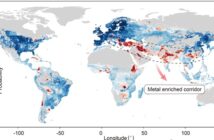The Chemicals Regulation Division (CRD) has approved the use of Funguran Progress to control late blight in organic potato crops.
The approval was granted on 10 July under an emergency use application made by AHDB last year. Growers in England are able to use the fungicide until 30 September 2020 and have until 31 October 2020 to dispose of stocks.
Marketed in the UK by Certis Europe BV, Funguran Progress has an active ingredient of 537 g/Kg copper hydroxide.
Certis UK Potato Product Manager, Nick Badger said: “This is good news for organic potato growers this season. Looking to the future, Certis Europe has recently submitted a new product submission (Article 33) to CRD for Funguran Progress. We await the outcome of its evaluation.”
To use the fungicide, you must ensure that any crops treated with the product aren’t exported to EU member states to avoid exceeding Maximum Residue Level (MRL) restrictions. Growers must also ensure that Funguran-treated potatoes are not fed to livestock.
In order to meet the two restrictions, the CRD has set out a series of stewardship arrangements. Growers are advised to keep comprehensive records of their Funguran use. As well as adherence to the restrictions, any samples submitted by a grower to an organic certifying body may also be used by the CRD to support future applications for Funguran.
Growers who want to use Funguan must:
- Record their use of Funguran Progress and any other copper-containing product used on the crop
- Keep documents enabling the CRD to trace treated crops through the supply chain
- Provide evidence that no treated product was fed to livestock
To apply Funguan Progress use a conventional hydraulic horizontal boom sprayer, keeping to a maximum dose of 2kg per hectare. A maximum number of four applications is permitted, with a 10-day interval observed between treatments. The final treatment can be made up to the point when leaves and stems are dead, 14 days before harvest.
The maximum dose of copper substances from all sources, including non-plant protection uses, must not exceed 4 kg copper/ha per annum.
Due to the new process for considering Article 53 Emergency Authorisations in the UK, the devolved administrations must consider any application separately to the UK Minister. At present, it is unlikely that Scotland, Wales and Northern Ireland will vote in favour of permitting the emergency use of Funguran Progress on organic potatoes.
AHDB Knowledge Transfer Manager Anne Stone said: “While fungicide sprays can be an effective part of blight control, many aspects of the potato crop affect its susceptibility to late blight and overuse can build up resistance. In the long term, the use of resistant potato varieties will be crucial to a sustainable blight management programme.
“Modern technology allows breeders to select varieties resistant to blight using genetic markers. Companies purchasing fresh market potatoes have named and listed new robust varieties, with many more coming through the development process.
While take-up of new resistant varieties is a slow process, organic growers can help by working with breeders, seed suppliers and customers to increase their use.”
For further information and guidance from AHDB Potatoes visit ahdb.org.uk/potatoes.




